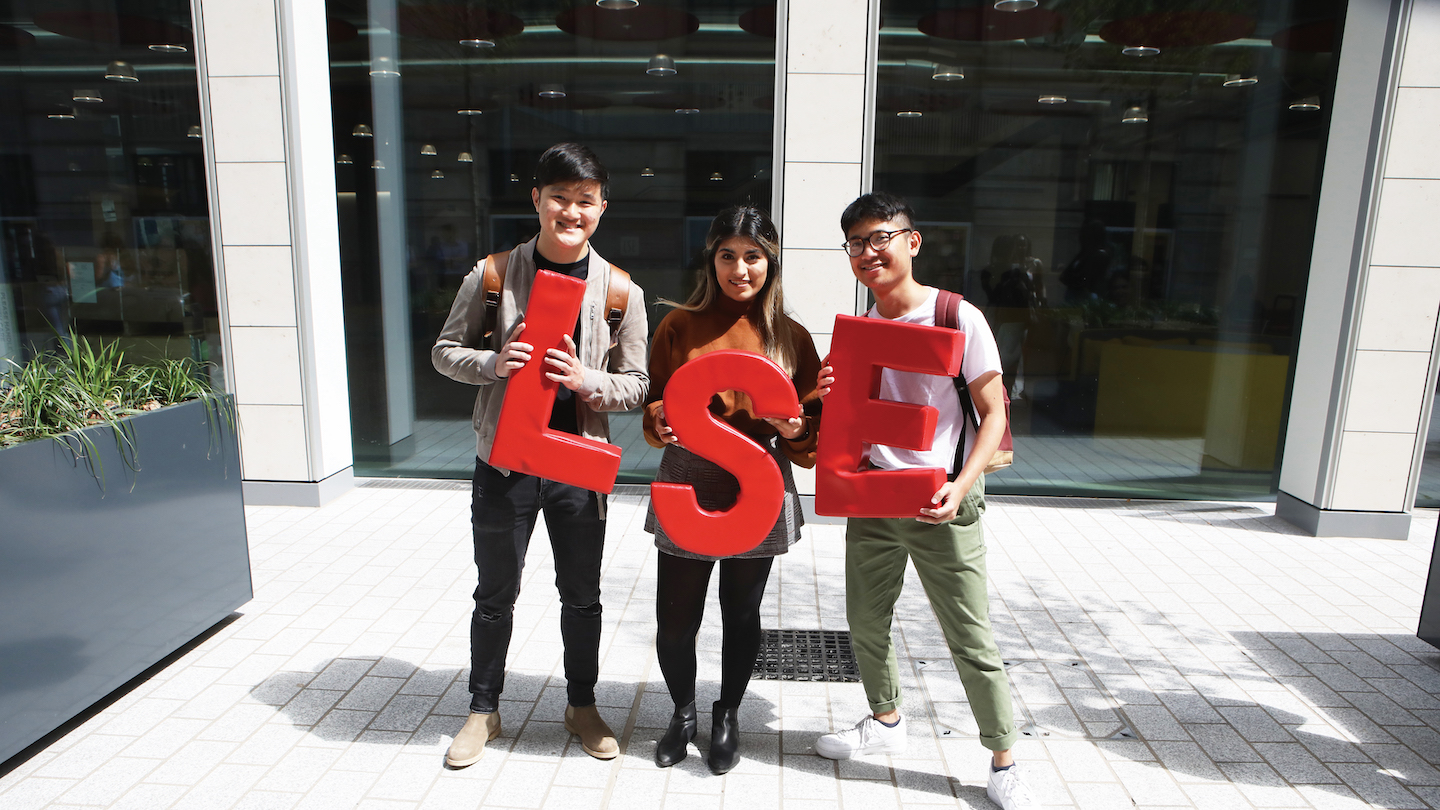
Jack Lee (far left) grew the GDSC in LSE to 1,700 members in the span of just six months (Photo: Jack Lee)
A friend can be counted on to inspire or tenderly shelter our insecurities from a transactional world. A friend is also what enables us to feel okay about exposing the soft underbelly of our psyche in times of adversity. A bond is all the more guaranteed when two individuals on the cusp of adulthood are facing a shared hardship, be it stressing over exams or casting job résumés into the post-collegiate abyss. Simply put, we naturally identify ourselves with the people we spend most of our time with. As the saying goes, “Show me your friends, and I’ll show you your future.”
These days, leveraging the power of peer influence is one of the primary strategies for universities to help students hit milestones and supercharge their CVs to improve employability. As start-ups ride on the creator or influencer economy, Silicon Valley conglomerates and leading financial firms are taking their talent hunt to academic institutions and investing in university-level initiatives to usher graduates to join their tech or corporate mission. This is also probably the reason the Google Developer Student Clubs (GDSC) — a worldwide initiative by the internet giant to bridge the gap between theory and practice through tech — have been gaining massive traction among students.
Peers who can empathise more emotionally are better positioned than educators to enrich another student’s learning process because one can tap the expertise of those who have already jumped the hurdles. GDSC, open to students from all backgrounds who are interested in Google developer technologies, is capitalising on a peer-to-peer learning environment to build solutions for local businesses and their communities. Currently, the GDSC at the London School of Economics and Political Science (LSE) has 1,700 members, making it the largest of over 1,100 such clubs in the world. And this outstanding feat, accomplished within just the span of six months, was made possible by a Malaysian high-flyer.
lse_gdsc_caught_the_attention_of_students_across_europe_and_asia_with_some_students_reaching_out_for_technical_learning_resources_and_opportunities.jpg

“We are making a genuine difference in the world,” said Jack Lee, a politics and economics graduate and captain of the rowing team, who was approached by Google to be the first lead for LSE. Although GDSC predominantly attracts computer science majors, Lee recognised the value in coding and wanted the club to appeal to those from non-technical backgrounds, too.
“One notable thing about LSE is that it does not offer courses in computer science,” says Lee. “The school, which is a major provider of graduate talent to investment banks in London, is instead best known for its social sciences, economics and finance courses. However, LSE GDSC has been teaching students to code in Python and hosting talks with financial firms that are interested in students who are keen in coding. Many banks have now begun to include Python as part of their training programmes for new analysts. The club’s success is a reminder that it is increasingly helpful to know how to code, even if you are a finance major.”
To recruit members from various academic disciplines, Lee put together a team of additional student leaders who, under his leadership, had the freedom to independently build tech-focused events that would pique the interest of students across the university.
Lee’s unyielding pursuit of rewards beyond academic triumphs is typical of his go-getter and enterprising generation that prefers to pave its own way. Instead of waiting for employment offers, LSE GDSC hosted 80 events and partnered start-up founders, venture capital investors, Forbes 30 under 30 luminaries, Fortune 500 CEOs as well as speakers from blue-chip companies such as Goldman Sachs, JPMorgan Chase, Morgan Stanley, IBM, BCG Digital Ventures, Boeing and NASA to organise talks that helped attendees gain career and industry insights. Connecting 150 students to mentors from different start-ups is one of the achievements that makes Lee and the club members most proud.
gdsc_open_to_students_from_all_backgrounds_who_are_interested_in_google_developer_technologies.jpeg

The youth are no longer just looking at college graduation as the beginning of a road full of promise, but also a path that leads them to improving social ills and solving real-life crises. The 2021 Solution Challenge mission, one of GDSC’s efforts to tackle one or more of the United Nations 17 Sustainable Development Goals using Google technology, was a good training ground for Lee and his members to put their skills into combating the planet’s problems.
Through the challenge, they were able to develop prototype solutions for non-governmental organisations to analyse real-time wildfires using TensorFlow machine learning; raise donations and grant access; and increase voter registrations.
Google is just one of the many tech companies in the world that is driving philosophical change in education by de-emphasising traditional academic learning. The benefits of upskilling the young, promoted by clubs like the GDSC, are lifting the underprivileged and empowering the marginalised across Europe and Asia.
“In the first training event I hosted on Cloud and AI (artificial intelligence), only five participants from India, Morocco, the US and the UK attended. Later that month, two of them reached out to thank me for the content they had learnt as it helped them to obtain scholarships for their local universities. Our team even took a step further by providing them with career resources on résumé and cover letter writing, interview preparations, and scholarship-tracking across regions,” said Lee.
University, or even a student’s club in this case, can be an introduction to a passion one did not previously have or a pivot into a field one never before envisioned. Leading the GDSC was more than buffing the brag sheet for Lee, who gained valuable exposure by working with Googlers from Silicon Valley, New York, London, Seoul and Beijing. Although he plans to carve out a career in financial services upon graduating, the impassioned lad will continue his role as a mentor for GDSC, coaching students to brainstorm unique ideas and instil a new urgency to overcome dire global issues like climate or ecological threats.
“I believe you can learn more from talking to someone in 10 minutes than if you spend years working on something. By watching and learning from others, I learn what to do and what not to do,” Lee enthused.
The bankable adage of “don’t give in to peer pressure” may be inaccurate, or at least incomplete, as a healthy mentor-mentee system can bring about positive growth and change. Youth, dynamos that power our future, should rely on each other more so than ever, hopefully with the aim of becoming the best version of themselves.
This article first appeared on Sept 6, 2021 in The Edge Malaysia.


